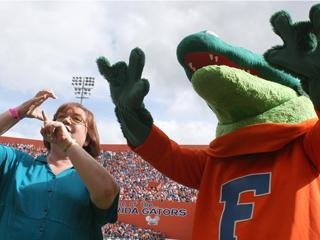Interpreting - more than ASL
American Sign Language (ASL) is spoken by many Deaf and hard of hearing people in the United States and Canada. It is a complete language with its own grammar and syntax. It is not merely pantomime nor is it English using the hands. It is not universal. Interpreters use American Sign Language and spoken English to communicate. Interpreting refers to the transfer of communication between languages, while maintaining each speaker’s intent.
Individuals who are Deaf or hard of hearing use ASL in many situations where verbal language is difficult to understand such as lectures, theatrical shows and conferences.
American Sign Language Interpreters:
- Can work before large & small audiences
- Have expert proficiency and speed in languages
- Have a great store of knowledge in their short and long-term memory
- Are curious lifelong learners
- Use the tone, register, words and nuances of the original speaker
- Use consecutive and simultaneous interpretation techniques
Interpreters are:
- Comfortable working in teams
- Willing and able to travel
- Flexible
- Reliable and professional
- Independent decision-makers
- Creative






